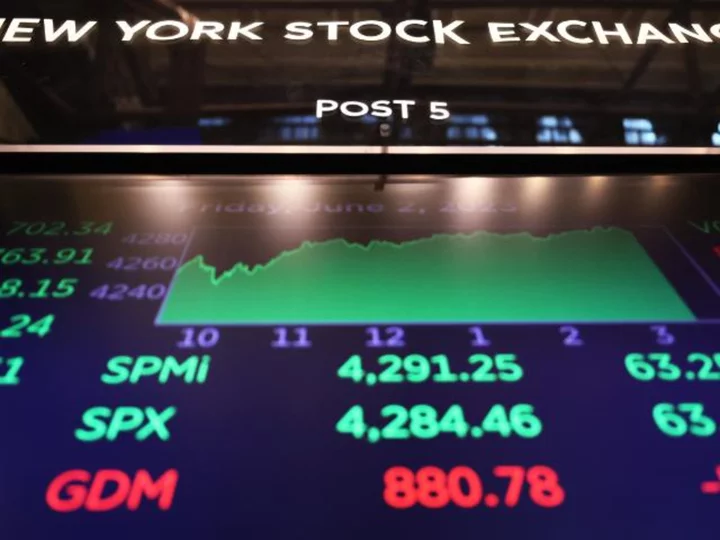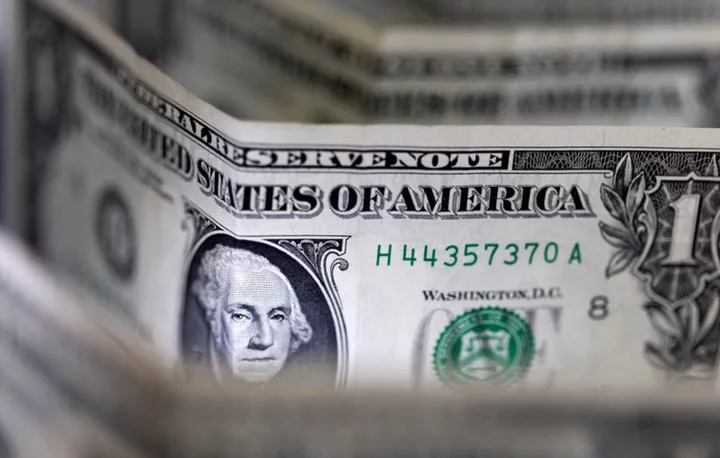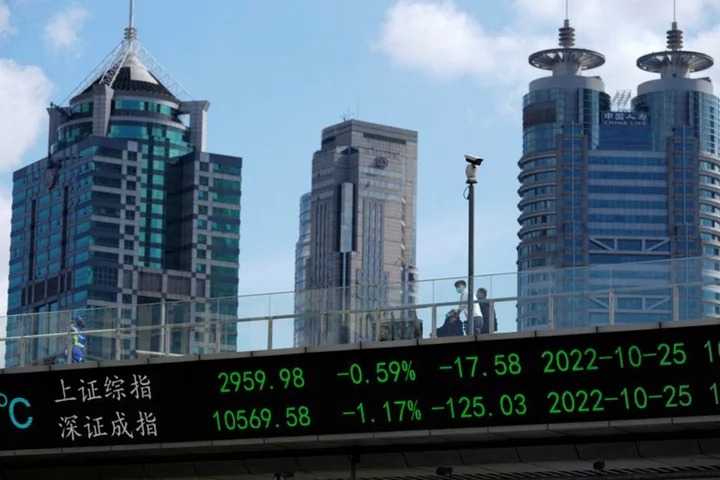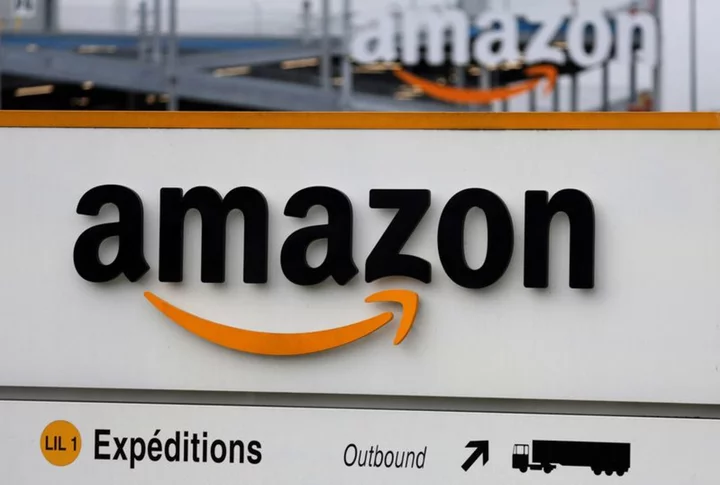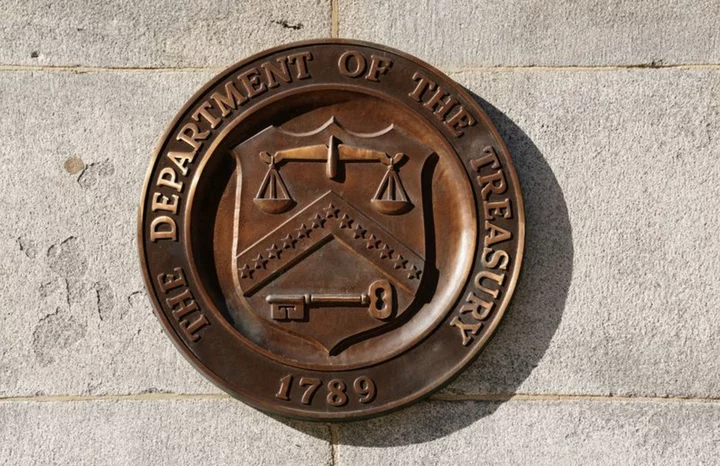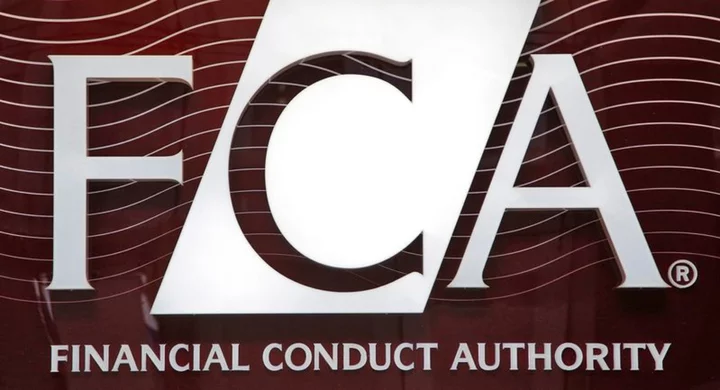What do you get when you mix recession fears, interest rate hikes, a spending slowdown and a housing crunch? A recipe for a bull market, apparently.
The S&P 500 is up nearly 20% from its October lows and within striking distance of a bull market — that's investor-speak for a period of time marked by rising stock prices and optimism on Wall Street.
But economists are warning investors to hold off on celebrating, at least for now. This could still be a bear market dressed in a bull's clothing.
What's happening: The S&P 500 closed at 4,283.24 on Tuesday, within 10 points of the threshold that separates a bull market from a bear market — that's a 20% gain off of the most recent low, reached on October 12, 2022. If the S&P 500 closes at or above 4,292.44, markets will officially be in the land of the bull.
Markets have remained surprisingly resilient over the past nine months, as 2022 losers like tech and media have bounced back from a disastrous year on hope that the worst is over for those industries.
Over the past week, markets have gained momentum, likely because of the end of the debt ceiling crisis, optimism that the Federal Reserve will pause rate hikes at its June meeting and a recent string of strong economic readings. And while those are all positives for the economy, analysts fear that this is a bear market rally that could end up biting investors.
"We're very late in the economic cycle that's starting to slow and probably heading for a recession later this year," Sameer Samana, senior global market strategist for Wells Fargo Investment Institute, told CNN. "The key difference for us is that you tend to see bull markets coincide with economic expansions, not economic contractions."
Still, since the last bull market, we've had a pandemic, a war in Europe, a banking crisis and a debt crisis among other dramas. Markets are in uncharted territory and while an economic recession coinciding with a Wall Street boom would be a first, "in this market, you never say never," said Samana.
What the duck: The current situation is a bit more nuanced than the bull market-bear market binary, said Kevin Gordon, senior investment research manager at Charles Schwab. He describes what's happening instead as a "duck market," meaning that stocks look nice and calm on the surface but there's a lot of paddling going on below.
Tech and AI companies with mega-cap stocks like Nvidia and Alphabet are soaring higher and "solving" the market's problems, he said, all while cyclical and smaller companies are suffering.
The S&P 500 is weighted and top-heavy, meaning that just a few companies are able to boost the index even as the majority of stocks struggle.
"Exuberance around artificial intelligence, along with a resurgent US dollar, has produced extreme divergence and concentration risk in the main stock indexes," said Lisa Shalett, chief investment officer at Morgan Stanley Wealth Management. "Such narrowness is not what new bull markets are built on."
The bottom line: Investors should "avoid getting sucked into this as a new bull market," said Samana. "Keep perspective of what this is, which is a very tantalizing bear market rally."
Investors should take advantage of this swing by trimming the parts of their portfolios that they've been waiting to get rid of, he said as opposed to trying to chase the tech companies that have led this upward move.
UPS strike could bring the economy to a standstill
Hundreds of thousands of UPS workers this week could authorize a strike that will bring the world's biggest package courier to a standstill.
That's a really big deal for the world's economy. The company transports more than 3% of global GDP and nearly 6% of US GDP each day.
A nationwide UPS strike would be the largest work stoppage in US history, reports my colleague Vanessa Yurkevich. The union represents more than half of UPS's total global employee base -- 340,000 UPS Teamsters -- which includes drivers and package sorters.
The vote would only authorize the strike if their union -- the International Brotherhood of Teamsters -- does not reach a new contract with UPS by August 1st.
The vote results will be announced next week on June 16, the union said. Strike authorization votes are routine during contract negotiations, and almost always pass.
At the heart of the negotiations for the union is improved pay and benefits and better working conditions, including adding air conditioning in the panel trucks used for UPS deliveries, which the union says poses a health risk for drivers.
"All Teamsters at UPS must be ready to show these corporate executives how serious we are about our new contract. We've been organizing, training, and rallying in the lots. Now it's time to vote," said Fred Zuckerman, the Teamsters General Secretary-Treasurer. "UPS is going to give us what we've earned. But we have to fight like hell for it. We must be prepared to hit the streets August 1 if UPS screws this up."
In April, UPS signaled it was committed to reaching an agreement before then.
"Taking care of our people and delivering for our customers is our top priority," UPS said in a statement.
US Bankruptcies reach highest level in 13 years
Chapter 11 filings in the US have reached their highest levels since the end of the Great Recession, according to new data from S&P Global Market Intelligence..
There were 54 corporate bankruptcy filings during May, a slight rise from the 52 recorded in April. In the first five months of 2023, there were more filings than any comparable period since 2010.
From Vice Media to Bed Bath & Beyond, there have been a slew of high-profile bankruptcies this year. In late May, corporate America had its worst 48-hour stretch of bankruptcies since at least 2008.
So far, more than 286 companies have filed for bankruptcy in 2023, according to the latest data from S&P Global, which tallied the figures through May.
Retail companies have been some of the hardest hit in the current economic environment as consumers pare back spending. Party City, Tuesday Morning and David's Bridal are just some of the retailers to have filed for bankruptcy this year.

